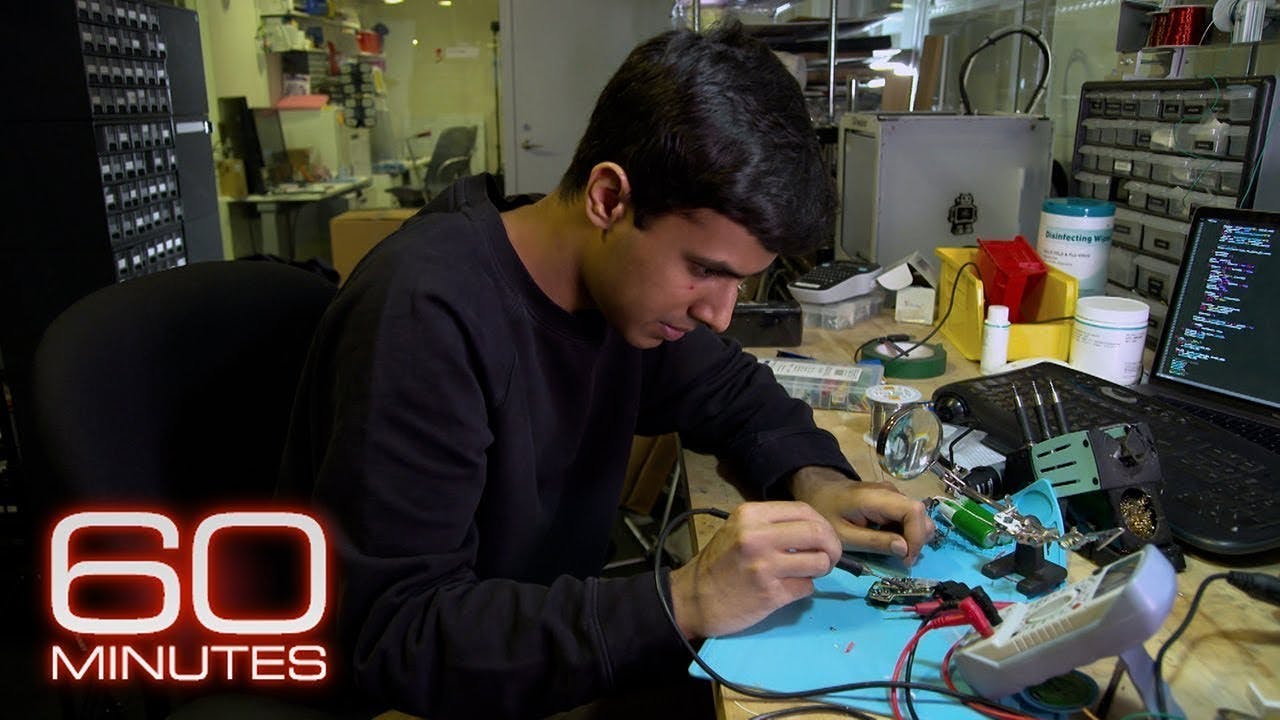Great Inventions | 60 Minutes Full Episodes
14 Feb 2024 (almost 2 years ago)

Marty's Big Idea (11s)
- Marty Cooper, known as the "father of the cell phone," made the first public cell phone call in 1973, revolutionizing communication technology.
- Cooper believes that cell phones are still in their infancy and have the potential for further advancements.
- He criticizes modern cell phones for their complexity and advocates for consumer-driven design.
- Cooper developed the Jitterbug, a simple retro cell phone designed for ease of use.
- Cooper is working on developing "smart antennas" to improve call quality in urban areas.
- Health monitoring and fitness tracking are emerging applications of cell phone technology, with the potential to revolutionize healthcare.
- Privacy concerns arise as cell phones track our movements and activities, necessitating a new mindset regarding personal data.
- Cooper envisions a future where wireless devices replace traditional forms of currency, raising questions about privacy and social interactions.
- Gordon Cooper predicts the merging of humans and machines, with powerful computers embedded behind the ear.
- Cooper believes that natural language communication with computers will revolutionize communication, making it more efficient and intuitive.
The Future Factory (12m24s)
- The MIT Media Lab is a research lab and graduate school program known for its diverse community and groundbreaking technologies.
- Notable inventions include a brain-controlled internet system, advanced prosthetics, Movie Map (a precursor to Google Street View), early flat-screen displays and touchscreens, voice-activated personal assistants, and early GPS navigation.
- Current projects include self-driving taxi tricycles, retinal eye exams using phones, and teaching robots.
- The lab selects students based on passion and encourages unconventional ideas.
- Adam Horowitz's system plants ideas for dreams and records conversations with the dreamer to capture creative ideas.
- Hugh Herr's lab developed a prosthetic foot that connects electronically to the wearer's leg, allowing for natural control and sensation.
- Professor Hugh Herr, who lost his legs to frostbite, designs prosthetic limbs and pursues technology to enhance human capabilities.
- The lab, led by Joi Ito, receives funding from 90 companies through membership fees, allowing research without grant proposals or permission.
- Caleb Harper's project involves building indoor farms with controlled climate conditions to study and replicate ideal growing conditions for different crops.
- Plants can now be grown in air, without soil, using a custom mix of moisture and nutrients.
- Cotton, usually treated as an annual plant, can grow year-round in a controlled environment and produce multiple crops.
- The Media Lab's success lies in its focus on exploration and innovation, encouraging thinking about the future and envisioning its possibilities.
eVTOLs (25m27s)
- Electric vertical takeoff and landing (eVTOL) aircraft are being developed as a faster, safer, and greener mode of transportation for congested cities.
- eVTOLs are battery-powered and can take off and land vertically, eliminating the need for a runway.
- Companies like Joby Aviation and Volocopter are working with the FAA to certify their eVTOLs for commercial use.
- Joby Aviation's eVTOL, the Joby S4, can carry a pilot and four passengers, has a range of 150 miles, and a top speed of 200 mph.
- Volocopter is developing a fully autonomous electric air taxi service that aims to be safer and more affordable than traditional piloted aircraft.
- The FAA is responsible for certifying autonomous air taxis for flight, and acting administrator Billy Nolan believes that hailing a piloted air taxi by 2024 is a possibility.